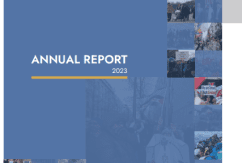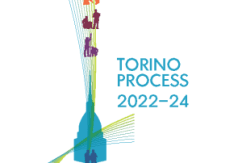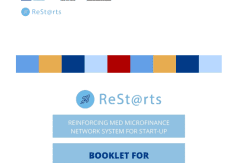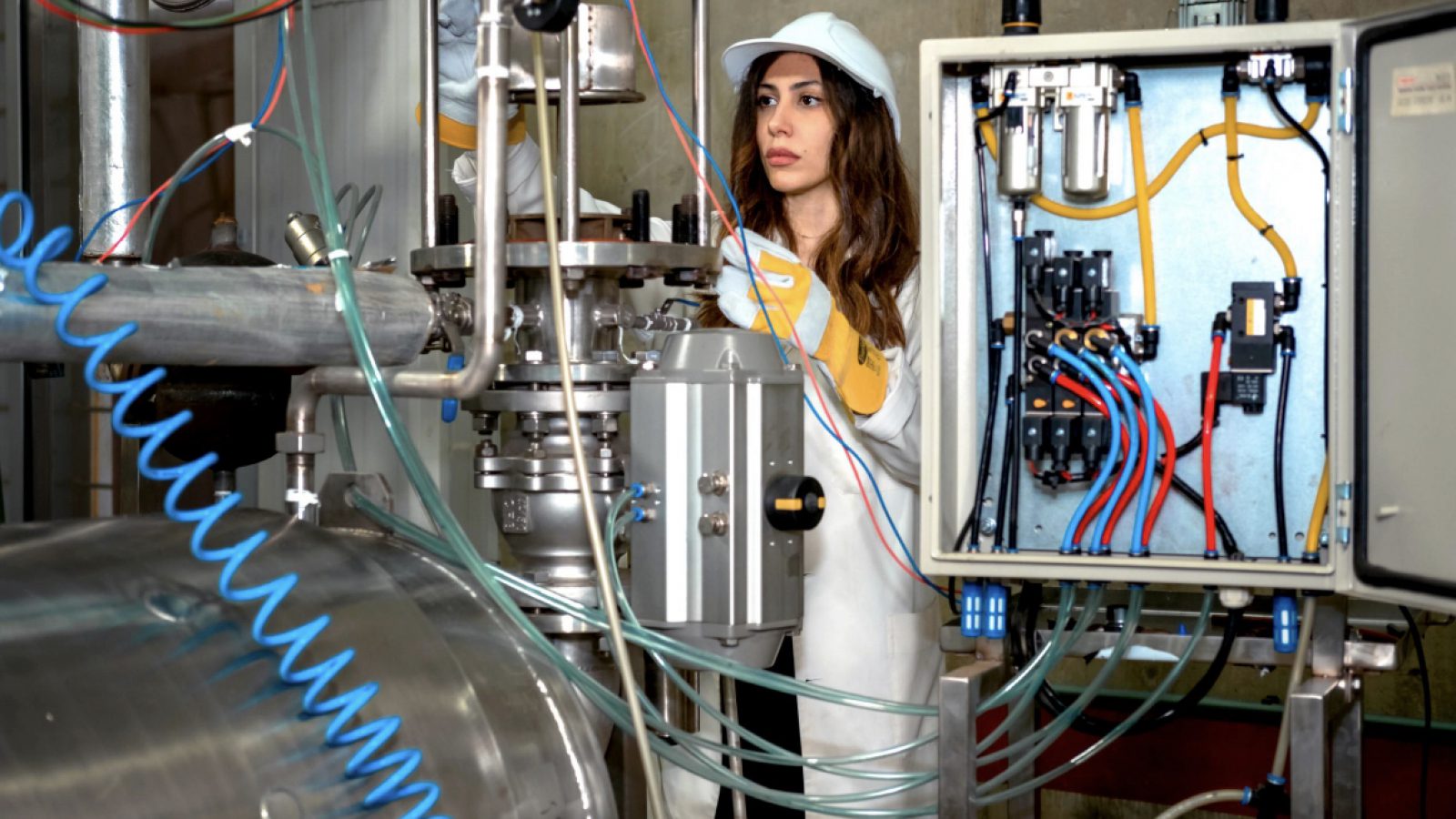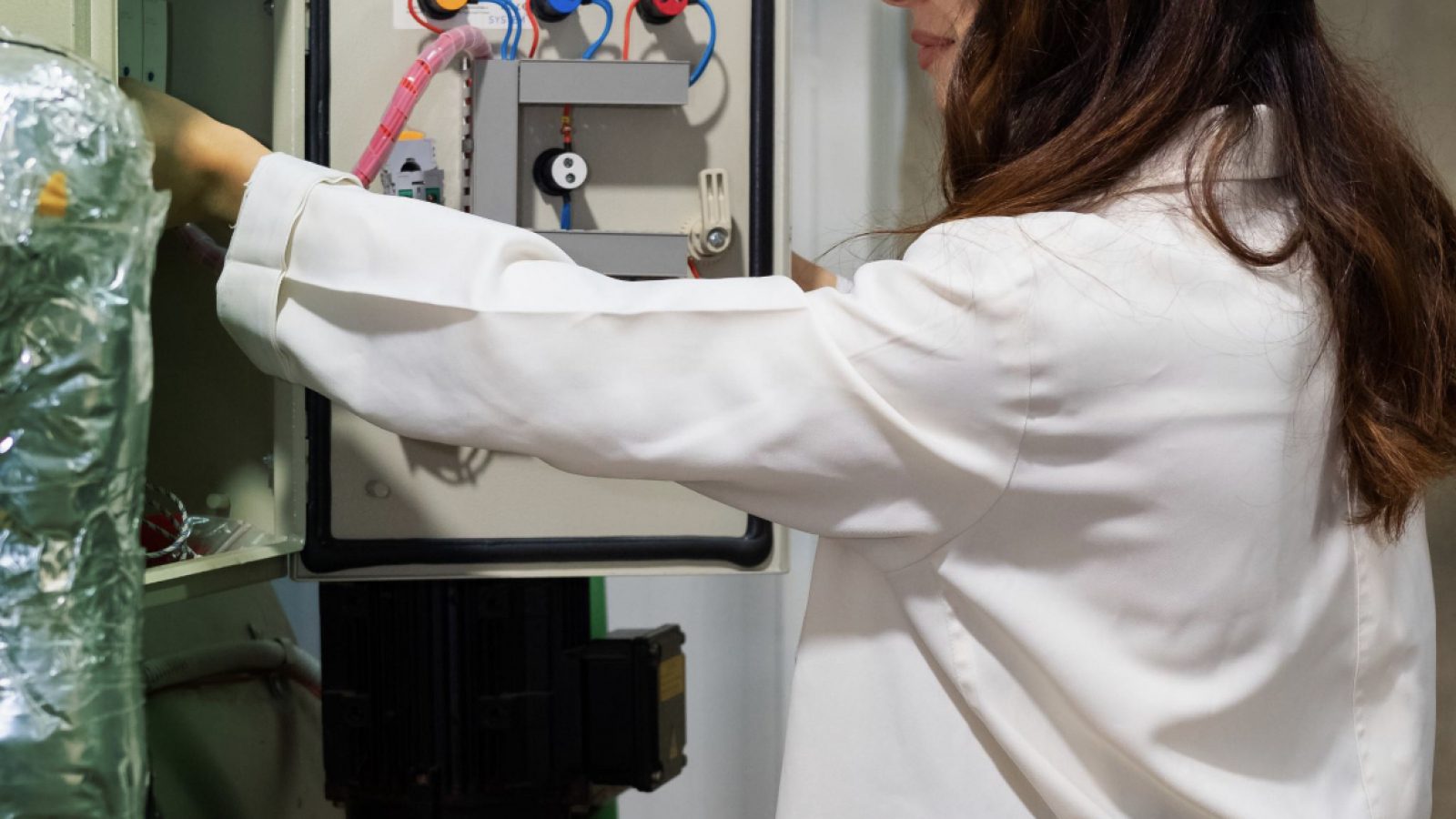Leading by example: Hiba Rajha, the compassionate researcher
Hiba Rajha is an accomplished researcher in process engineering who made it her mission to push other women to pursue their careers in science. Leading by example, the lecturer encourages her students to persevere and acknowledge their great abilities in the field, by stressing that “competence is not always enough to succeed. Perseverance is more important, especially for us women.”
“It is important to acknowledge your weaknesses and to work on them; rather than to be defeated and let them drown you.” This reality, Hiba Rajha knows better than anyone. After a BA in biology and biochemistry, a Masters in genetics and proteomics, and a PhD in process engineering, Hiba found herself in front of a wall. “As accomplished at I was supposed to be with all these studies, I realised that I knew nothing well enough to be a specialist. I felt incomplete.” “This was really painful and hard to admit, especially after more than eight years of studying.” Nevertheless, the young Lebanese decided to return to university and completed another five years of study, where she specialised in process engineering. “This allowed me to reach the point where I could truly blossom in the position that I wanted: teaching.”
Empowering women: a job in itself
As a teacher and researcher at the faculty of engineering of St Joseph University in Beirut, Hiba has become a mentor to all her female students, whom she pushes to keep going in spite of adversity. “What I am the most proud of you cannot find in my CV: woman empowerer. Through my own example, I want to push women to be engaged and to believe that they, too, can have positions of importance.” In February 2022, she proved once again the key of persevering, as she won the prestigious award of L‘Oréal Unesco for Women in Science Young Talent. “Being a woman is one of the hardest things in the world; many obstacles can come your way, especially if you don’t get the chance to be supported like I was, by my family and my male peers.” “As a woman in science, maybe you will need to work twice as much, to get stronger, or to reach out for help. But, with the right mindset and support, you all have the power to succeed in whatever you want. And don’t forget: being afraid is part of the process!”
Hiba has made it her mission to motivate other women, notably her university students. “I put them in real life positions of decision making within the research world where people are not used to seeing women.” Even more important than proving your worth as a woman is making your own decisions in Hiba’s view. “Science is my passion but no one should ever think ‘you are either a scientist or you are a failure’. Being yourself and pursuing whatever makes you mentally, physically and emotionally healthy is what you should go after.”
Work for the community you are part of
Founder of her own NGO, Hiba’s generous nature also led her to launch a startup in consulting, which “will give me yet another way to help fellow women in science to reach opportunities, jobs, and strive in their field” she says. This activity will be inspired by her work with the EU-funded BESTMEDGRAPE project, whereby Hiba fosters the use of plant waste to be used in cosmetic and pharmaceutical applications. “Just like I care about women empowerment, I care about environmental preservation. Reduce, reuse and recycle should be a motto embraced by many more”. How does she find time for herself in all that? “Well, this is a rush I cannot control,” she explains with a smile, “I feel incomplete if I don’t act, especially if I am not involved in my community.”
Home to some of the world’s most ancient civilizations, hub for trade and transport, unique hotspot for biodiversity, the Mediterranean faces a multitude of common challenges, including climate change, pollution, youth unemployment and social inequality. Acting together to address these challenges is the impetus for the 2014-2020 ENI CBC “Mediterranean Sea Basin Programme”, the largest Cross-Border Cooperation (CBC) initiative implemented by the EU under the European Neighbourhood Instrument (ENI). The Programme brings together the coastal territories of 14 EU and partner countries in view of fostering joint development on both sides of the EU’s external borders. The Programme currently finances 80 cooperation projects worth €200 million for a more competitive, innovative, inclusive and sustainable Mediterranean area
The EU Commission’s gender equality strategy in research and innovation
The European Commission is committed to promoting gender equality in research and innovation. It is part of the European Commission Gender Equality Strategy for 2020-2025, which sets out the Commission’s broader commitment to equality across all EU policies. In addition, the EU has a well-established regulatory framework on gender equality, including binding directives, which apply widely across the labour market including the research sector.









